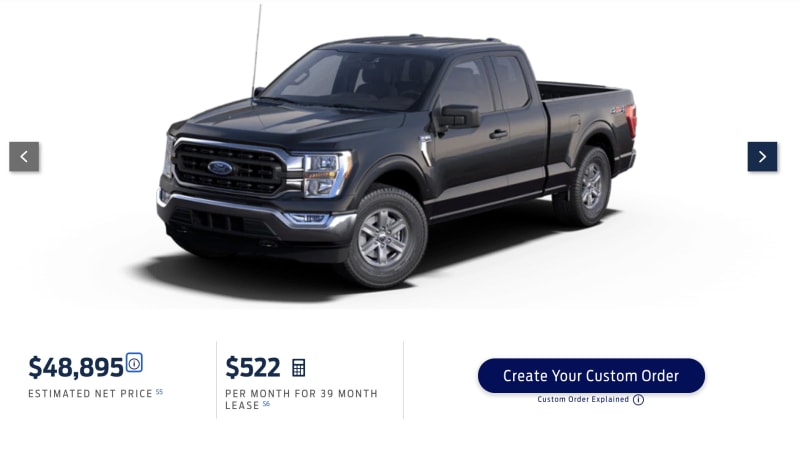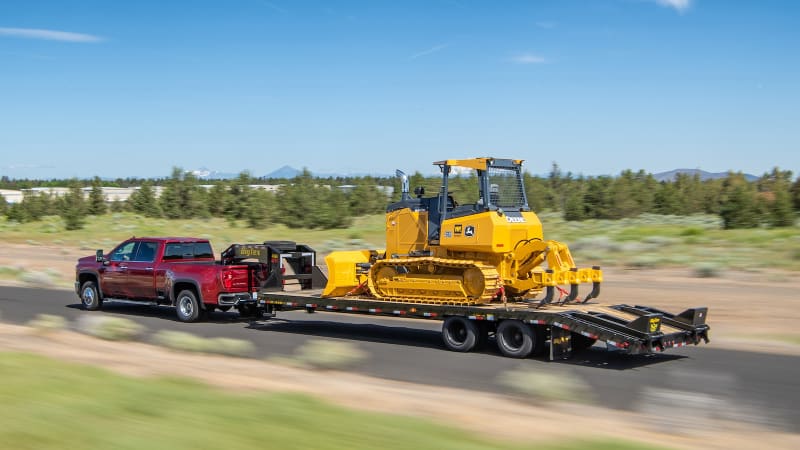You don’t need me to tell you that Americans love pickup trucks. And the bigger the truck, the more likely it seems to be seen as an object of desire. Monthly and yearly sales charts are something of a broken record; track one is the Ford F-Series, followed by the Chevy Silverado, Ram’s line of haulers, and somewhere not far down the line, the GMC Sierra. The big Japanese players fall in place a bit further below — not that there’s anything wrong with a hundred thousand Toyota Tundra sales — and one-size-smaller trucks like the Toyota Tacoma, Ford Ranger and Chevy Colorado have proven awfully popular, too.
Along with their sales numbers, the average cost of new trucks has similarly been on the rise.
Now, I don’t pretend to have the right to tell people what they should or shouldn’t buy with their own money. But I just can’t wrap my head around why a growing number of Americans are choosing to spend huge sums of money on super luxurious pickup trucks.
Let me first say I do understand the appeal. People like nice things, after all. I know I do. I myself am willing to spend way more than the average American on all sorts of discretionary things, from wine and liquor to cameras and lenses. I’ve even spent my own money on vehicles that I don’t need but want anyway. A certain vintage VW camper van certainly qualifies. I also currently own a big, inefficient SUV with a 454-cubic-inch big block V8.
So if your answer to the question I’m posing here is that you’re willing to pay the better part of a hundred grand on a chromed-out and leather-lined pickup simply because you want to, then by all means — not that you need my permission — go buy one.
The part I don’t understand is this: Why wouldn’t you, as a rational person, rather split your garage in half? On one side would sit a nice car that is quiet, rides and handles equally well and gets above average fuel mileage. Maybe it has a few hundred gasoline-fueled horsepower, or heck, maybe it’s electric. On the other side (or even outside) is parked a decent pickup truck. One that can tow 10,000 pounds, haul something near a ton in the bed, and has all the goodies most Americans want in their cars, like cruise control, power windows and locks, keyless entry, and a decent infotainment screen.
If you’re only interested in buying brand new, a look at Ford’s online configurator for the F-150 proves it’s not hard to price out a nice F-150 XLT 4×4 with a back seat and an EcoBoost engine for something around $49,000. A loaded F-150 Limited runs about $86,000. Both are fully capable of doing trucky things, but one costs close to $40,000 more than the other because it’s slathered in leather, wood, and technology.
I’m not picking on Ford. It’s a similar story at Ram, Toyota and General Motors. We recently ran a piece where we picked out the best and worst vehicles the automaker currently sells, and I chose a big, full-size truck for both categories. Regarding the Chevy Silverado 3500 HD I chose as GM’s best, I said:
“For less than $58,000, a buyer can snag a Silverado with four doors, four-wheel drive, dual rear wheels and a 6.6-liter turbodiesel engine mated to a 10-speed automatic. Skip the creature comforts (of which a great many are available) and you’re left with a truck that boasts 910 pound-feet of torque and a strong enough package to tow as much as 36,000 pounds or haul up to 7,400 pounds in the bed.”
Regarding the GMC Sierra Denali, which I chose as GM’s worst, I said:
“I just went to GMC.com and used their online configurator to virtually build a 2023 Sierra Denali that would cost $86,360. Naturally, I chose all the best bling, including beautiful pearl white tri-coat paint and 22-inch bright chrome wheels. It really is a gorgeous pickup truck, but a pickup truck that I would absolutely never do any actual trucky work with.”
And that’s the problem as I see it. Trucks serve a very important purpose in modern society. People need to haul things, whether those people are John and Jane Homeowner who like to tend to their gardens on the weekends or the construction workers that show up at their job sites every morning with a full load of tools in locking bins in the bed. We buy campers and tow them hundreds of miles. We haul our boats to the lake, our dirt bikes and race cars to the track, and we sometimes even dump loads of rocks and gravel into the beds.
We need trucks. Trucks are good. They are excellent tools when used for their proper purpose. In fact, they are probably the best vehicles America builds. But we don’t need to use all of these trucks as our daily drivers. There are better tools for that job.
Before you think I’m going to tell you to buy an electric car (not that that’s the worst idea in the world), take a look at this previous opinion article I wrote. No matter what you want powering it, you can buy a very nice gently used car for the $40,000ish difference in price between the F-150 XLT and F-150 Limited mentioned earlier.
If I were spending my own money, I’d look at a certified pre-owned F-150 with the 5.0-liter V8 for under $35,000. There are over a dozen near me with warranties for sale right now (remember how many of these things Ford sells?). That’s not a small sum, but it’s not so much that I’d be afraid to fill its bed with building supplies. Or, you know, any of the other kind of tasks trucks are good at doing. You could choose to go truly cheap and get a something like an old used Dodge Dakota or Toyota Tundra.
Either way, you’d have plenty of money left over to put another nice car in the garage, one that’s just as luxurious, quieter, more comfortable, more fun to drive, easier to park, and, yes, significantly more efficient. Two tools, and each of them purpose built for their specific job.
Related video:
Source: www.autoblog.com



